
BACKGROUND

Tongji International Design Summer School has been organized by CAUP (College of Architecture and Urban Planning) in Shanghai since 2005. This two-week urban design workshop has gained international reputation as a distinguished platform for international students to meet and communicate to each other, and is widely accepted and highly recognized by both domestic and worldwide renowned universities. The 2024 CAUP Summer School is now open to the students for application domestically and aboard. During the two-week period, a “City Walk” in weekend is planned for students to enhance the interests and understanding on Chinese traditional culture. The final works will be criticized by invited international jurors, and exhibited, published as well. The three most prominent ones will be awarded.
THEME
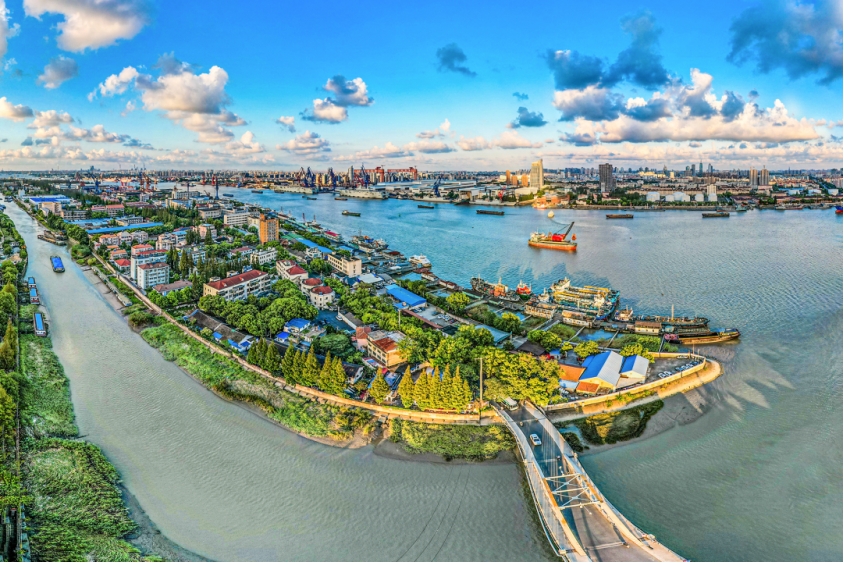
With the acceleration of global urbanization, cities are facing increasingly severe crises and challenges, which threaten the quality of life and well-being of urban residents. These challenges include, but are not limited to, resource pressures, environmental pollution, increased risks of natural disasters due to climate change, infrastructure imbalances caused by social inequality, social service pressures resulting from aging populations, urban residents' lifestyle and health issues. Each of these necessitates comprehensive and proactive planning to mitigate.
In response, Planning Healthy And Resilient Cities offers new ideas and directions for responding to urban crises. On one hand, healthy cities focus on spatial regulation at the planning and design stage to achieve interventions in the physical and mental health of the population. Based on pathways such as reducing health risks, optimizing health resources, and promoting healthy behaviors, regulating and shaping urban spaces enhance public health and human well-being, thus prioritizing people and improving the quality of urban spaces. On the other hand, the construction of resilient cities emphasizes enhancing the disaster resistance and adaptability of urban systems. This includes establishing sound emergency response mechanisms, strengthening the disaster resistance of urban infrastructure, promoting diversified socio-economic development, and so forth. By enhancing the resilience of cities, it effectively alleviates losses caused by natural disasters and social crises, achieving rapid recovery and stable development of urban systems.
Fuxing Island, situated in the lower reaches of the Huangpu River and located in the southeast of Yangpu District, Shanghai, is the only enclosed river island in downtown Shanghai and the sole island in the Huangpu River. It is an artificial island formed through human reclamation and dredging. Over a hundred years, Fuxing Island has played roles as industrial land, military station, and enterprise base, accompanying people in Shanghai. In the 21st century, with the relocation of existing industries and residents from Fuxing Island, how to develop and construct it has consistently been a topic of considerable concern to the government and industry, stimulating the imagination of all those interested in the island's future. In the Shanghai Urban Master Plan (2017-2035), Fuxing Island is designated as one of the strategic reserve areas, serving as an important spatial carrier for Shanghai's future development. Consequently, this urban whitespace will herald myriad possibilities.
The 2024 TONGJI CAUP International Design Summer School will choose Fuxing Island as the targeted study area. The main propose of this workshop is to discuss how to explore the full potential of the strategic reserve area, amend the defects of the urban environment, improve the quality of urban space and rejuvenate existing neighborhoods, through creative urban design. The workshop seeks to establish a public space network that can be compatible with the city’s future development, and introduce prosperity and vitality to the community of Fuxing Island. Besides, this workshop will explore how to effectively integrate the concepts of health and resilience in urban planning, provide innovative solutions for the sustainable development of future cities, and promote the construction and development of healthy and resilient cities.
Activity Highlights
During the 12-day summer school, participants from Technical University of Berlin, The University of Hong Kong, University of Pennsylvania, Vienna University of Technology, Bauhaus-Universität Weimar, University of Sevilla, University of Mumbai, University of Venice, Graz University of Technology, Politecnico di Milano, École Nationale Supérieure d'Architecture de Versailles, Carnegie Mellon University, Chandler-Gilbert Community College, Georgia Institute of Technology, Harvard University, Merrimack College, Beijing Jiaotong University, Chongqing University, and Tongji University were divided into three major design groups. Under the guidance of teachers from Syracuse University, University of Sevilla, Monterrey Institute of Technology and Higher Education, École Nationale Supérieure d'Architecture de Versailles, Institut National des Sciences Appliquées de Lyon, and Tongji University, they completed activities such as research on the Revitalization Island base and design output presentations, achieving fruitful results.
Revitalization Island Research
During this period, led by Professor Zhu Wei, teachers and students visited the Shanghai Urban Planning Exhibition Hall. Led by tutors Zhu Yichen and Guo Boya, they participated in a 2-day City Walk and attended nine professional lectures under the guidance of professors from both China and abroad.
Nine lectures were delivered by professors from China and abroad, including Associate Professor Gan Jing from Tongji University, Professor Bu Bing from the School of Architecture at Syracuse University, Professor Emilie Gascon from École Nationale Supérieure d'Architecture de Versailles, Assistant Professor Yin Jie from Tongji University, Professor Jose Melendo from the School of Architecture at the University of Sevilla, Professor Rémi Ferrand from Institut National des Sciences Appliquées de Lyon and École Nationale Supérieure d'Architecture de Versailles, Professor Zhu Jieming from Tongji University, Professor Robert Roggema from the Department of Architecture, Art, and Design at Monterrey Institute of Technology and Higher Education, and Associate Professor Shen Yao from Tongji University.
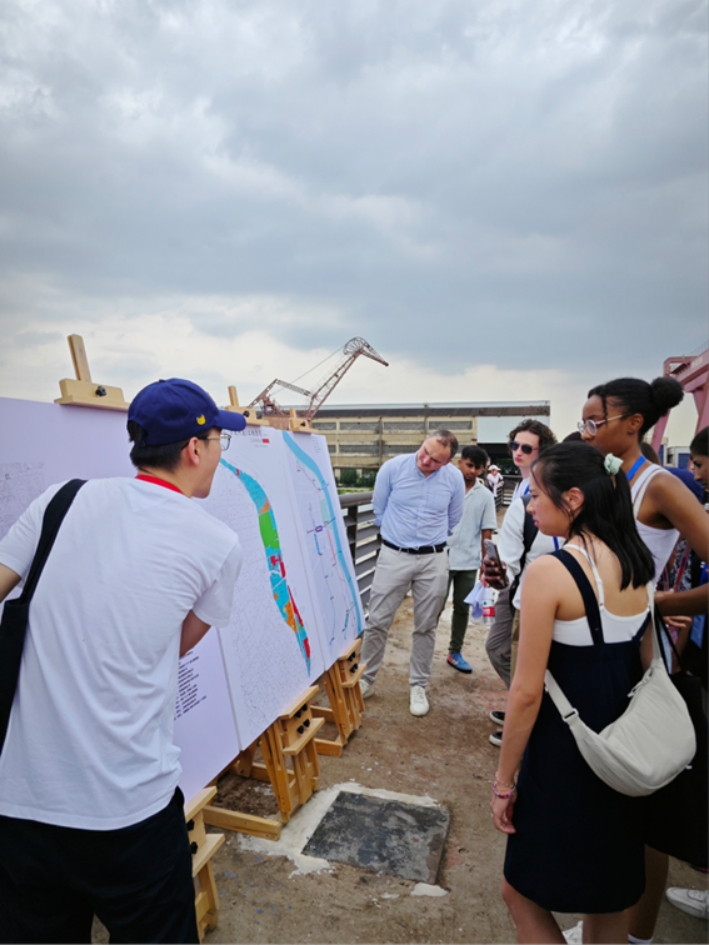
Lecture Recap
Throughout the design practice process, participants explored how to promote social prosperity and spatial vitality in the Revitalization Island and its surrounding areas through creative urban design.
At the same time, they also explored how to effectively integrate the concepts of health and resilience into urban planning, providing innovative solutions for the sustainable development of future cities.
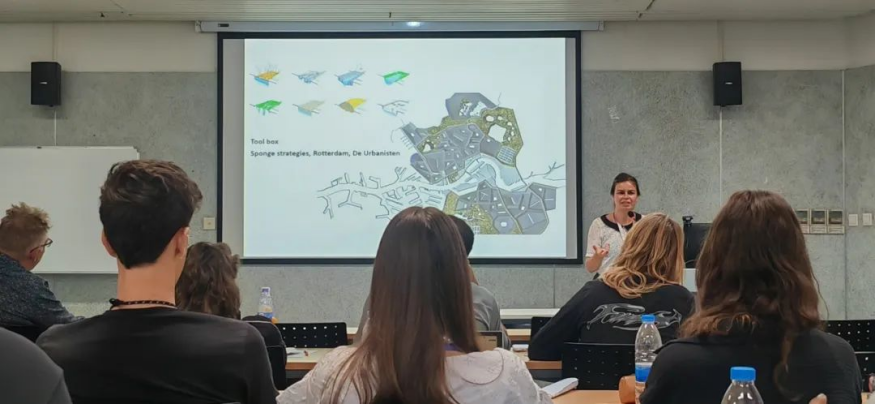
Visits to Shanghai Urban Planning Exhibition Hall, Sinan Mansions, and Suzhou River
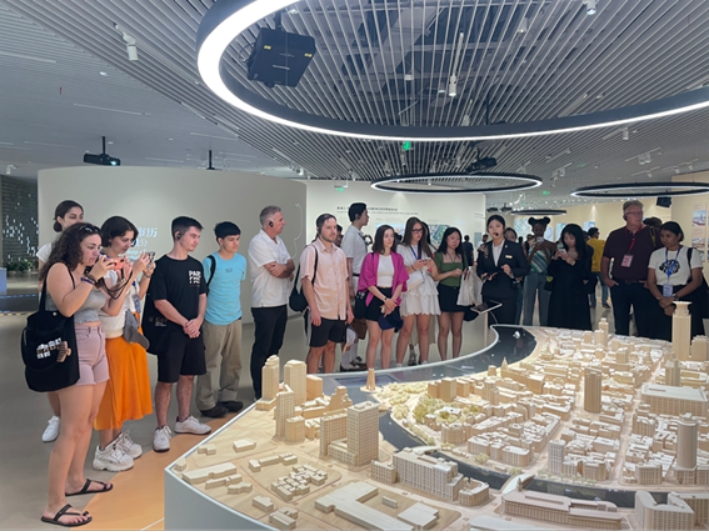
Group Photo at Shanghai Urban Planning Exhibition Hall

Group Photo at Sinan Mansions
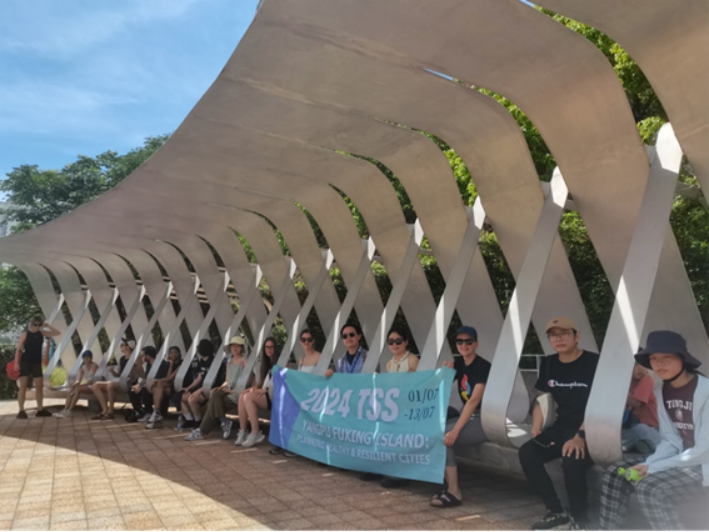
Group Photo at Suzhou River
Achievement Presentation and Certificate Awarding
The closing ceremony was presided over by Cheng Yao, deputy director of the Department of Urban Planning at the College of Architecture and Urban Planning. Guest judges included Professor Tong Ming from the School of Architecture at Southeast University, Prof. Markus Berger from the Rhode Island School of Design (RISD), and all instructors.
At the closing ceremony, a video was first played to review the learning, design practice, and team collaboration process during the summer school, showcasing the participants' field research, City Walks, lectures, discussions, and design work on Yangpu Revitalization Island.
Next, each group determined their presentation order through a draw and presented their design proposals, elaborating on their creative ideas, design concepts, and specific methods.
Finally, based on the scoring results from the expert jury, the instructors awarded certificates to all participants.
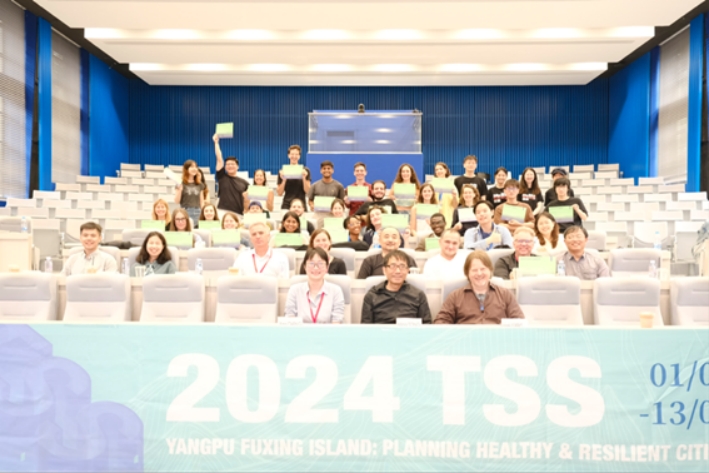
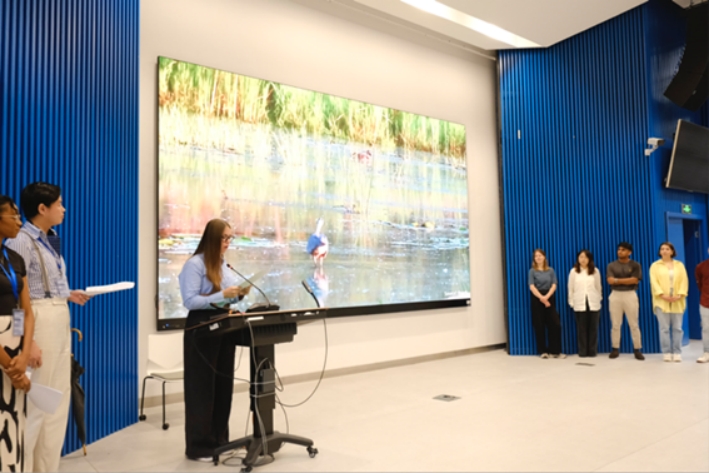
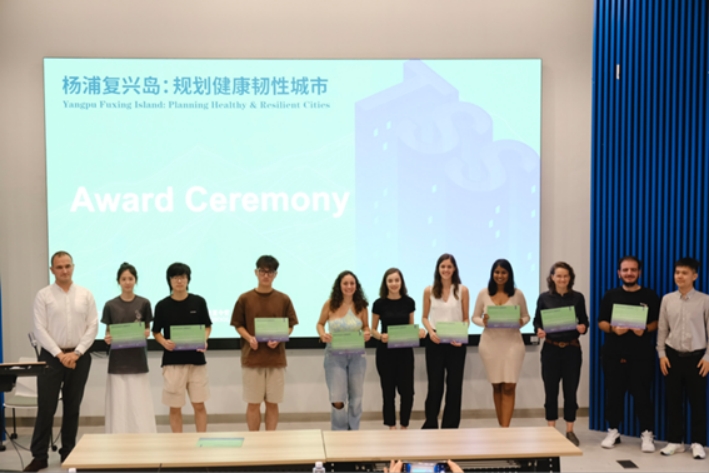
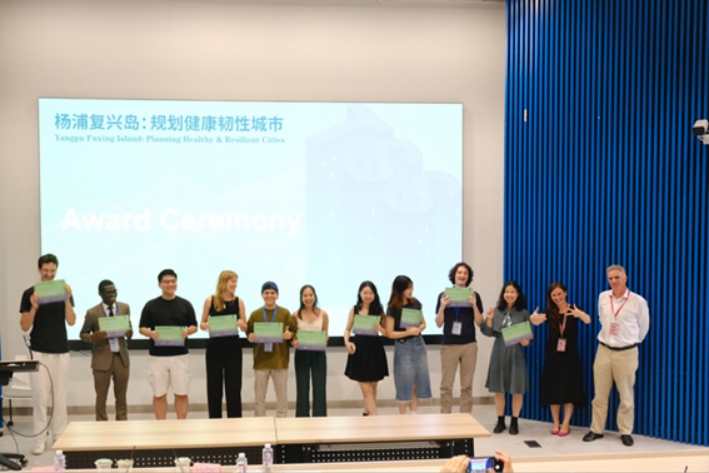
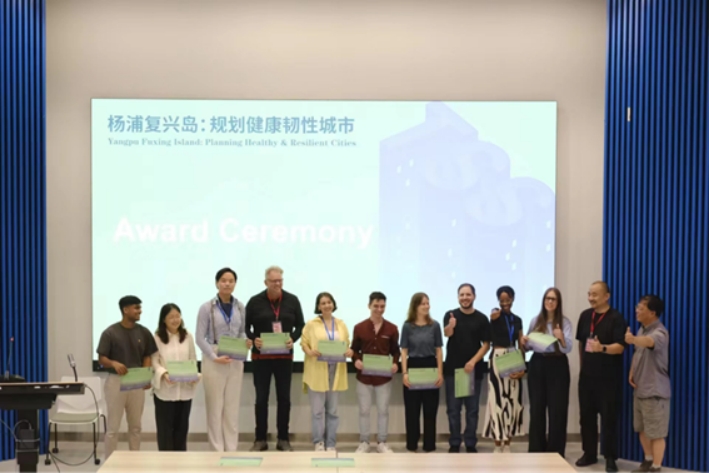
 ABOUT US
ABOUT US




